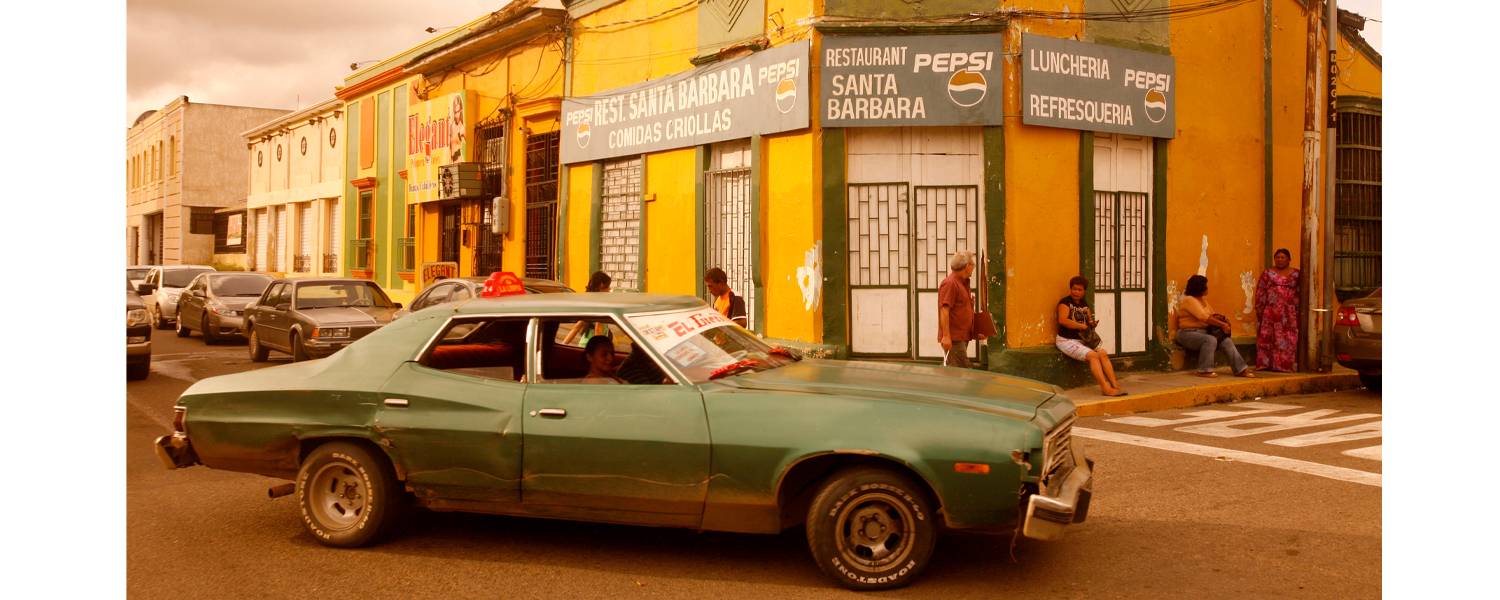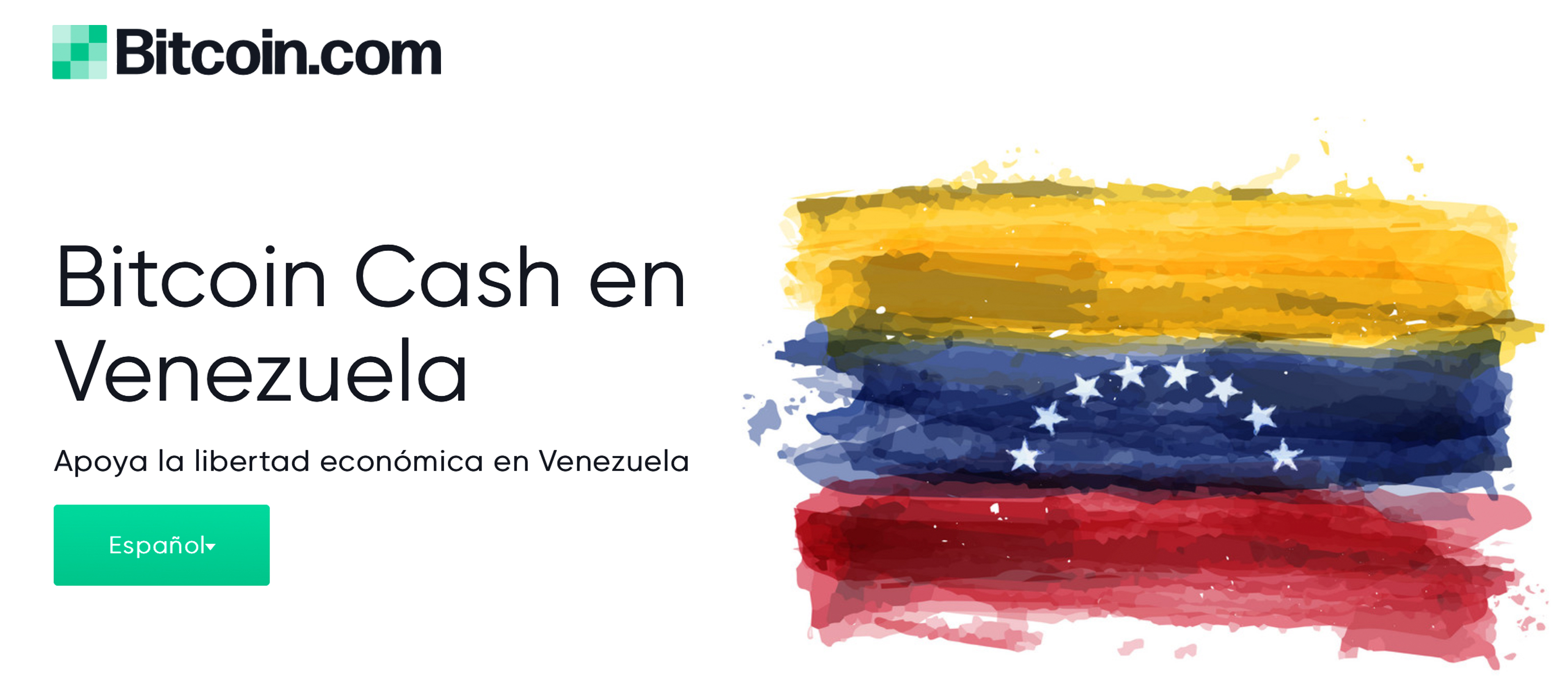For quite some time now, Venezuela has been suffering from a political crisis and a collapsing economy. Venezuelans dealing with rampant inflation continue to see their purchasing power decline. After witnessing one of the worst economic disasters in modern history, 4 million citizens have emigrated to seek a better form of money, shelter, and to gather food and medicine. Throughout the monetary struggle, there have been uplifting stories of Venezuelans discovering sound money and finding financial shelter in cryptocurrencies.
Also Read: Simple Ledger Protocol Announces Virtual Hackathon Devoted to SLP Token Ecosystem
Droves of People Seek Refuge From Venezuela’s Financial Collapse
Central planners worldwide continue to wreak havoc on the world’s economy and a few South American countries like Argentina and Venezuela are seeing their financial systems decline at a rapid rate. In Venezuela, the inflation rate is expected to reach 10,000,000% by the end of 2019 and monthly figures for July were roughly 265,000%. Since the region has been suffering from hyperinflation, millions of Venezuelans have left to seek refuge elsewhere but many have also stayed behind. Fernel Ricardo, a resident of Maracaibo, recently explained what is happening to his city in an interview during the first week of September.

Maracaibo is the second-largest city in Venezuela and Ricardo detailed that many people living there were dealing with rotten food and sometimes water won’t come out of the taps. Despite the fact that Maracaibo is an extensive metropolitan city comprising two municipalities, telecommunications infrastructure is often dead, leaving the whole city with a single state-radio station. When the communications infrastructure recently went down, Ricardo said: “Nobody told us what was going on, the station just played music.” The economic situation is the same in rural areas and other cities like Caracas, Maracay, Valencia, and San Cristobal.
The First Auto Insurance Plan Purchased With Bitcoin Cash
In the midst of it all, some Venezuelans are seeking a hedge using international currencies like the U.S. dollar, and alternative options like gold and cryptocurrencies. Digital currency supporters have been promoting the use of cryptocurrencies for a while now, so Venezuelans can benefit from censorship resistant money. Venezuela.bitcoin.com was designed for this very reason and our team has been onboarding merchants in the country to help them get started. Last March, Venezuela.bitcoin.com’s lead manager Matt Aaron told the British Broadcasting Corporation (BBC) that team members in Caracas are paid in bitcoin cash. “Transactions are instant and cost less than a cent to make,” Aaron explained at the time. This week, Aaron told news.Bitcoin.com that the first auto insurance plan was purchased with bitcoin cash and took place at Sefiseguros. Aaron explained that the ground team who initiated the onboarding process operate a website called Aprendebitcoin.org and the crew has been educating local business owners in Venezuela about bitcoin cash regularly.
First auto insurance plan purchased with Bitcoin Cash at SefiSeguros!
Pay with BCH at 12 locations across Venezuela.
Thanks to the ground team who educated Sefi!https://t.co/DLRJP1AGl0#bchvenezuela #venezuela pic.twitter.com/852YgnpXhc
— 𝕄𝕒𝕥𝕥 𝔸𝕒𝕣𝕠𝕟 (@mattaaron) September 3, 2019
“The owner of the business has 12 locations selling auto insurance and it’s a AAA type insurance which is really important if you need a tow in a dangerous spot,” Aaron remarked. He added that thanks to the crew behind the educational website, one of the business owners learned about the attributes of crypto and decided to accept BCH for insurance payments. With ground crews in the country, such as Venezuela.bitcoin.com and Aprendebitcoin.org spreading the information about cryptocurrencies, citizens learn first-hand about benefits of BCH. A few examples include:
- Credit card processing machines are very expensive and hard to find.
- Credit card processing fees are high – around 3-6%.
- The Venezuelan bolivar is a decimated, hyper-inflationary currency.
- No need for a bank account.
- Transactions are instant and cost less than a U.S. penny.

Peer-to-Peer Powered Food Drive Eatbch Shines in Venezuela
Another organization that has been very busy over the last few months in Venezuela is the nonprofit food drive powered by bitcoin cash, Eatbch. Last February the group celebrated its one-year anniversary and this June the nonprofit organizers traveled to Washington D.C. to speak about their humanitarian work in Venezuela using bitcoin cash at the Center for Strategic and International Studies (CSIS) headquarters.
We’re grateful for what you do for all of us pic.twitter.com/Uwz67OWSxf
— eatBCH Venezuela (@eatBCH_VE) August 30, 2019
During the presentation, the Eatbch team explained what they had been doing in Venezuela by feeding people meals using donated BCH and how BCH offers a peer-to-peer, borderless, low-fee solution. From here the participants at the CSIS were very intrigued by the efforts and the attention was entirely focused on Eatbch.
“Suddenly, our presentation became the main point of the meeting, and a big part of the interventions thereafter were directed or were about us,” explained the organizers’ blog post. “Some were a bit skeptical, questioning our safety and KYC/AML procedures, but most were fascinated and impressed, since they never heard about it and were pleased to know that there was a group already functioning in the ground.” Eatbch added:
This whole trip proved to us that we made the right choice with Bitcoin Cash, not only for the coin but also the awesome community around it.
Throughout the month of July and August, @Eatbch_VE Twitter followers can see that the nonprofit has been diligently feeding children and families in need of food. There are always pictures of people being fed through BCH donations and the group details how individuals are able to share a meal together thanks to everyone who generously donated.
It’s time for more pictures!
We’d like to thank you for your support once again ❤️ pic.twitter.com/VGgPjDb68B
— eatBCH Venezuela (@eatBCH_VE) August 5, 2019
After seeing the pictures Eatbch shares regularly on Twitter, one observer who said he rarely retweets anything decided to share the photographs because he believes “feeding hungry kids in suffering Venezuela may be the best use-case yet for cryptocurrency and bitcoin.” “You should support them any way you can, and especially with preferred bitcoin cash — Just look at the happy kids — Thanks Eatbch.” Alongside helping a large number of malnourished Venezuelan families, Eatbch organizers are also feeding people in South Sudan.
Precious Metals and Finding Hope With a Single Universal Asset
With merchant acceptance and charitable operations like Eatbch, cryptocurrencies have been helping people in Venezuela a great deal and many people living abroad are providing on-ramps for Venezuelans to join the cryptoconomy. In a recent Reason podcast, the Human Rights Foundation’s Alex Gladstein and Reason’s Nick Gillespie discussed how cryptocurrencies are revolutionizing human rights and civil liberties in Venezuela. In addition to cryptocurrencies, buying precious metals like gold has become popular in South Venezuela near Brazil. Reports say that Venezuelans have to resort to three options to maintain purchasing power: “Buy gold, buy anything to resell it later, or buy dollars” and the second solution is where cryptocurrencies come into play.
La maldición de la fiebre del oro, acaba con nuestra tierra y se mete en la ciudad, causando muerte y arrestos masivos, como hoy en el cc macrocentro de Pto Ordaz pic.twitter.com/rBYlJnHN4U
— Alicia Estaba (@aliestaba) March 25, 2019
“The curse of the gold fever destroys our land and gets into the city, causing death and mass arrests, as today in the Macrocentro Mall at Pto Ordaz city,” the above tweet reads.
It’s a common sight to see Venezuelan dealers trying to sell gold throughout the busy sections of South Venezuela. However, there are issues with people being deceived with fool’s gold and merchants won’t accept “contaminated” USD. “If you go to Venezuela, many locals will not accept $1 or $5 bills. Nor will they accept folded, marked, or merely old bills,” local reports detail. Because of the underlying issues with dirty fiat and shady precious metal dealers, more Venezuelan people are being pushed toward using bitcoin as a universal asset instead.
Promoting #BitcoinCash in #Maracaibo, Venezuela at Sambil Maracaibo 💚#BCHhttps://t.co/vYOOPowVpy pic.twitter.com/oVqkS9w5Be
— CryptoBay.cloud (@CryptobayC) September 5, 2019
The educational resource and analysis web portal Ledger Journal also highlighted the use of digital currencies in this manner throughout Venezuela in the journal’s 2019 volume 4. Ledger Journal author Jackie Johnson wrote that “Bitcoin, as a single universal asset, is substituted for the ‘basket of goods’ normally used in the purchasing power parity, allowing the estimation of the relationship between the Venezuelan bolivar and the United States dollar.” Johnson added:
In countries where residents are under pressure from economic mismanagement, bitcoin trading becomes critical. Two factors drive bitcoin trading: one, there is pressure to purchase bitcoin using local currency before it loses even more value; and two, there is a need to redeem for the local currency either past purchases or purchases made outside the country by friends/family, enabling residents to cope with rising prices. This results in an increase in bitcoin trading in the local currency.
Crypto proponents understand the need for people to maintain purchasing power and this is why groups like Venezuela.bitcoin.com, Aprendebitcoin.org, Panda Group, and many others are pushing for adoption in the country. One example is how Panda Group recently partnered with a 22-store pharmacy franchise in Venezuela called Farmarket. The partnership allows people traveling from great distances to buy products and medicine using cryptocurrencies like BCH, DASH, DAI, and BTC. The Panda team based in Colombia also installed a machine on the border of Venezuela in Cucuta city. The device is meant to help Venezuelan refugees who cross the Simon Bolivar International Bridge every day. Venezuelans are mainly using cryptocurrencies to facilitate daily exchanges and to keep their purchasing power safe from the devalued bolivar. Right now there’s plenty of individuals and organizations out there willing to show the way.
What do you think about the situation in Venezuela and the individuals and groups pushing cryptocurrency adoption in the area? Let us know what you think about this subject in the comments section below.
Image credits: Shutterstock, Venezuela.bitcoin.com, Twitter, and Pixabay.
Did you know you can buy and sell BCH in a private manner using our noncustodial, peer-to-peer Local Bitcoin Cash trading platform? The Local.Bitcoin.com marketplace has thousands of participants from all around the world trading BCH right now. And if you need a Bitcoin wallet to securely store your coins, you can download one from us here.
The post Venezuelans Fighting Economic Hardship Discover Crypto’s True Potential appeared first on Bitcoin News.
Powered by WPeMatico
